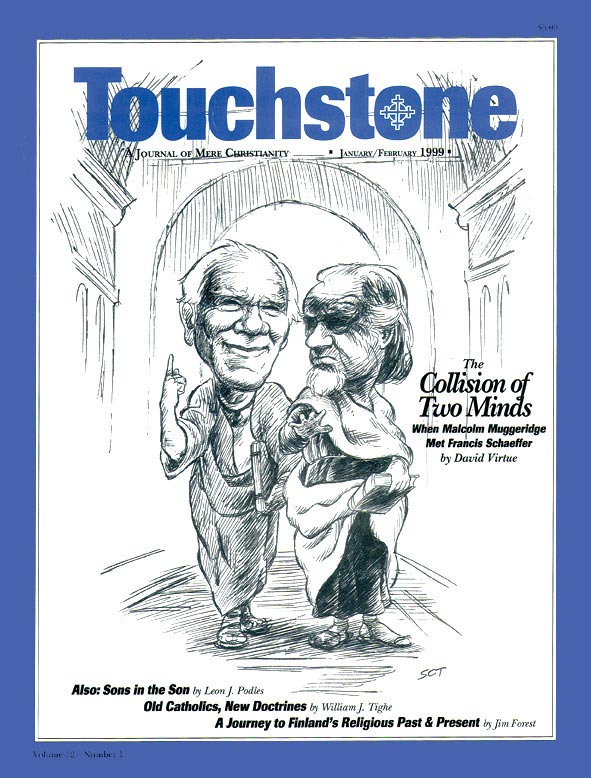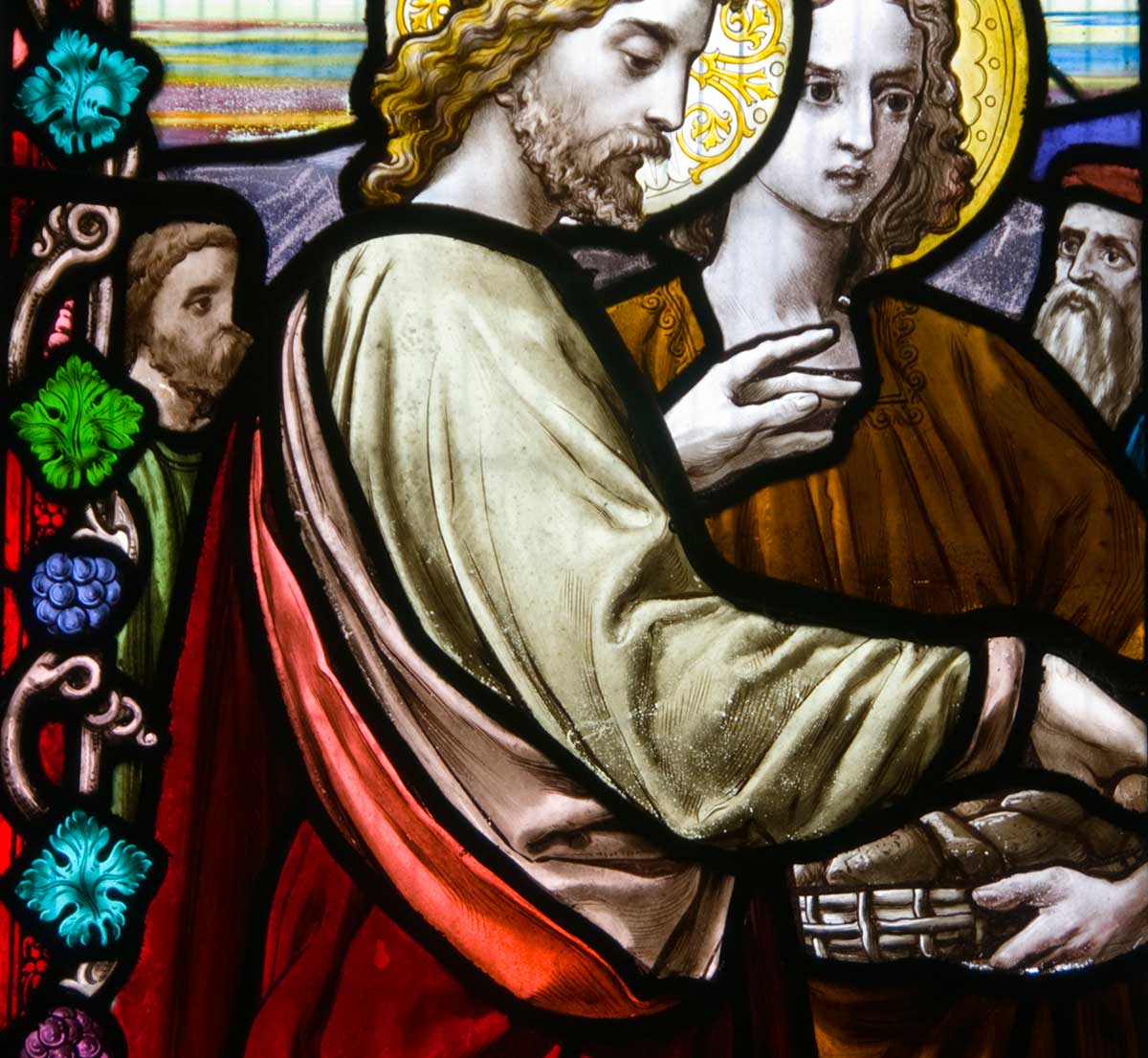Tracing the Path to Impasse
Biblical Interpretation: Past and Present
by Gerald Bray
Downers Grove, Illinois: InterVarsity Press, 1996
(608 pages; $34.99, cloth)
reviewed by Patrick Henry Reardon
Gerald Bray, editor of the Churchman and professor of Anglican Studies at Samford University in Birmingham, Alabama, recognizes that contemporary biblical scholarship has arrived at an impasse, probably even a crisis. For several centuries its concerns have strayed ever further from those of the Church and of ordinary Christians, and more recently it has been made to serve the purposes of scholars whose established ideologies and agendas could be reconciled with the traditional Christian faith only with great difficulty, if at all.
Correctly sensing that the proper way of addressing this hermeneutical impasse is through an investigation of how we arrived at it, Bray has crafted this lengthy and detailed historical survey of biblical interpretation, starting with ancient Judaism and coming all the way to present-day liberation exegesis and feminist political interpretation.
The author divides this history into three periods of very unequal lengths: the pre-critical era, running up to the seventeenth century; the emergence and dominance of the historical-critical method, from about 1800 to roughly twenty years ago; and, finally, the present state of biblical scholarship. The study of Holy Scripture in each of these periods is further divided in ways appropriate to each. Thus, within the first stage, Bray distinguishes the classical patristic approach from the paths of the Middle Ages and the Reformation, and within the patristic exegesis he gives individual attention to the particular characteristics of Alexandria, Antioch, the West, and so on. For each period he describes the major hermeneutical premises and doctrinal concerns. Then, for each section, he isolates a single book of the Bible and shows how it was interpreted during the period in question.
Though more schematic and less detailed than, say, The Cambridge History of the Bible, this is a very helpful book and a considerable mine of useful information. It is recommended here with enthusiasm.
This recommendation, however, comes with two substantial reservations. The present impasse of biblical studies recognized by Bray is chiefly problematic for Protestantism, so it is entirely to be expected that his study of its history should rest on explicitly Protestant and evangelical premises. This preference is fair enough, but it does represent a significant limitation of his treatment. There are blinders on the vision of this volume. Not nearly so affected by the current crisis in biblical studies, Eastern Orthodoxy and modern Roman Catholicism are both egregiously neglected.
First, Eastern Orthodoxy. Sharing what appears to be a virtual theorem among Western historians that folks east of the Adriatic have neglected the Bible for the past thousand or more years, Bray cites, as his most recent Orthodox exegete, the eleventh-century Bishop Theophylact of Ochrid. Given the great and extensive use of the Bible in Eastern Orthodox worship and asceticism, this assessment is not likely. Reading Bray, however, one would never conjecture the publication of voluminous biblical commentaries and studies by modern authors like Makrakis, Trempela, Andriopoulos, Tzogas, Karavidopoulos, Bratsiotis, and so forth. Eastern Orthodoxy is neglected because it simply does not fit into the author’s historical schema. Put simply, the study of the Bible is not a big problem for the Orthodox today, because biblical study in the East has not been so adversely affected by historical-critical methods as has been the case in the West.
This phenomenon is not a historical accident, nor does it result from an academic isolation on the part of Eastern Orthodox scholars. Their relative neglect of historical-critical methods in biblical study has been quite deliberate. Seminary professors in Greece, Russia, Serbia, and other Orthodox lands are very aware of modern Western developments in biblical scholarship, but they are also overwhelmingly persuaded that such developments, originally spawned by rationalistic ideologies radically at odds with the integrity of the Christian faith, are of very limited and highly dubious value. Consequently, when they have had recourse to these modern methods, they have generally done so with a marked circumspection, as one may see in scholars like Veselin Kesich, Savas Agouridis, John Breck, Demetri Trakatellis, and Theodore Stylianopoulos.
A recent exception to this rule is Father Paul Tarazi’s three-volume The Old Testament: An Introduction, where one will meet exactly the same improbable hypotheses impetuously advanced, the identical imaginative reconstructions, and the equivalent footnoted extravaganzas characteristic of liberal German scholarship.
Second, Roman Catholicism. Recent and contemporary Roman Catholic biblical scholarship is viewed by Bray as simply an extension of its Protestant counterpart. Indeed, he introduces it in an attitude approaching condescension, twice remarking that Pope Pius XII’s encyclical Divino Afflante Spiritu, in 1943, gave Roman Catholics “permission to engage in critical study of the Scriptures.” This grossly oversimplified perspective goes far to explain Bray’s failure to take adequate stock of Roman Catholic biblical studies.
He does refer to the founding of the École Biblique in Jerusalem by Father Lagrange back in 1890, as well as the archeological accomplishments of his Dominican successors, Vincent and DeVaux, during the next half-century. He does not seem to suspect, nonetheless, that those developments were part of a determined agenda initiated by Pope Leo XIII near the turn of the century and ongoing to this day. Other aspects of that agenda were Leo’s encyclical on biblical studies, as well as the subsequent encyclical on the same subject by Pope Benedict XV, the establishment of the Pontifical Biblical Commission at the Vatican, the inauguration of many new journals (Biblica, Revue Biblique, The Catholic Biblical Quarterly, Revista Biblica Italiana, Estudios Biblicos, Verbum Domini, etc.), the publishing of extensive monographic series like Etudes Bibliques and Analecta Biblica, the founding of the Pontifical Biblical Institute in Rome as the sole faculty authorized to confer academic degrees in scriptural studies, and so forth, including the major scriptural research publication used in all the world, the massive annual Elenchus Bibliographicus Biblicus.
All of these developments have produced a plethora of scholarship far beyond the very few modern Roman Catholic authors mentioned by Bray. Even Ceslaus Spicq, a distinguished product of the École Biblique and professor of the Dominican seminary at Salchoir, is lumped in with a group of Protestants representing “the German sphere.” Goodness, reading this volume a person would never guess at the voluminous biblical scholarship of Belgium, Spain, and other non-Protestant countries. Indeed, in a book that manages to comment on nearly every evangelical biblical interpreter in this century, no matter how minor, one will search in vain for such names as Cerfaux, Bea, Kuss, Schnackenburg, de la Potterie, North, Lohfink, Dupont, Alonso-Schoekel, Martini, and, literally, scores of others. Truly, the width of this gap is astounding.
Even with these two reservations, however, the present reviewer greatly enjoyed Bray’s historical survey and is happy to recommend it.
Patrick Henry Reardon is pastor emeritus of All Saints Antiochian Orthodox Church in Chicago, Illinois, and the author of numerous books, including, most recently, Out of Step with God: Orthodox Christian Reflections on the Book of Numbers (Ancient Faith Publishing, 2019).
subscription options
Order
Print/Online Subscription

Get six issues (one year) of Touchstone PLUS full online access including pdf downloads for only $39.95. That's only $3.34 per month!
Order
Online Only
Subscription

Get a one-year full-access subscription to the Touchstone online archives for only $19.95. That's only $1.66 per month!
bulk subscriptions
Order Touchstone subscriptions in bulk and save $10 per sub! Each subscription includes 6 issues of Touchstone plus full online access to touchstonemag.com—including archives, videos, and pdf downloads of recent issues for only $29.95 each! Great for churches or study groups.
Transactions will be processed on a secure server.
more from the online archives
calling all readers
Please Donate
"There are magazines worth reading but few worth saving . . . Touchstone is just such a magazine."
—Alice von Hildebrand
"Here we do not concede one square millimeter of territory to falsehood, folly, contemporary sentimentality, or fashion. We speak the truth, and let God be our judge. . . . Touchstone is the one committedly Christian conservative journal."
—Anthony Esolen, Touchstone senior editor









